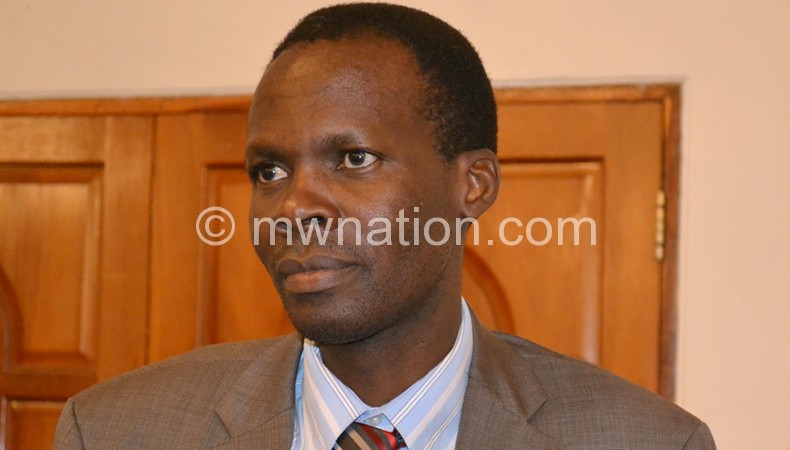IMF to discuss Cashgate progress
The recent Mission of the International Monetary Fund (IMF) concentrated on the progress that the country has made in dealing with the aftermath of Cashgate and measures that have been instituted to prevent its recurrence.
Confirming this development, Treasury spokesman Nations Msowoya said the mission’s findings will form the thrust of their report to the IMF Board meeting in Washington, USA, in February 2015 to determine whether a new ECF programme should be made available to Malawi.

“They wanted to know how far we have gone with the prosecutions and how the law enforcement agencies and justice delivery system have been empowered to effectively deal with the matters.
“Besides, they wanted to know the state in which accountability and oversight institutions are for them to perform their functions in a manner that makes sure excesses are prevented.
“They also wanted to see the extent to which reforms under the Public Finance Management programme have gone to put in place systems that would deter and arrest abuses,” he said.
In addition, said Msowoya, the IMF mission was also interested in seeing how far the country has gone in instituting reforms to the entire public sector.
As a result of the discovery of Cashgate, the country’s development partners suspended their direct budgetary support estimated at 40 percent.
This has led to a squeeze on public resources and resulted in the collapse of the entire social sector.
Government is poignantly trying to persuade them to return pointing to the measures and reforms that it has already instituted.
President Peter Mutharika cites on-going arrests and prosecutions, restructuring oversight and law enforcement institutions, increased funding to them and the public finance management programme which aims at deterring abuse and nipping wastage.
As part of the reforms, government has decided to rationalise spending by sizing down the civil service, starting with the trimming of the number of principal secretaries from 96 to 40 to coincide with the number of ministries which were reduced to 20.
This, only, will save about K1 billion per year in salaries.
Government has also embarked on public pay harmonisation exercise aimed at removing disparities and gaps in the remuneration of people with the same qualifications, doing the same amount and type of work.
Last week Weekend Nation unearthed huge salary disparities between officers in the main civil service and other public organs and in some instances, the same grade had differences of up to K1 million.
Meanwhile, government has decided to replace the current Integrated Finance Management and Information System (Ifmis), credited for facilitating the infamous Cashgate, because it cannot cope with all government transactions and remains susceptible to abuse.
Msowoya explained that the development is part of measures to prevent the recurrence of the pilferage of public money, christened as Cashgate, which in three months only in 2013 saw about K23 billion stolen.
He said a team of local experts is undertaking a study, expected to be completed between January and February 2015, which will recommend the best public finance management system to be adopted.
“It is true that the current Ifmis cannot handle all government transactions. That is why you are hearing of cases where cheques take time to be cleared. This makes it still vulnerable to abuse.
“This is the reason the study will be looking at two options of replacing it – either through an upgrade or a complete replacement with a new system,” he said.
Msowoya said the team doing the study comprises information technology (IT) experts, accounting technicians and data management specialists from across the spectrum.
“The option of replacing the system through an upgrade will be determined by the amount of the cost for doing it. Should the cost be high, it will just be as well that we should go for the option of a complete replacement,” he said.
According to Msowoya, the Mission of the International Monetary Fund (IMF), which was in Malawi recently to complete fifth and sixth reviews of the three-year Extended Credit Facility (ECF),endorsed the strategy being part of the reforms the cooperating partners are expecting.
The mission is expected to report to the IMF Board in Washington, USA, in February 2015 to determine whether a new ECF programme should be made available to Malawi. n





